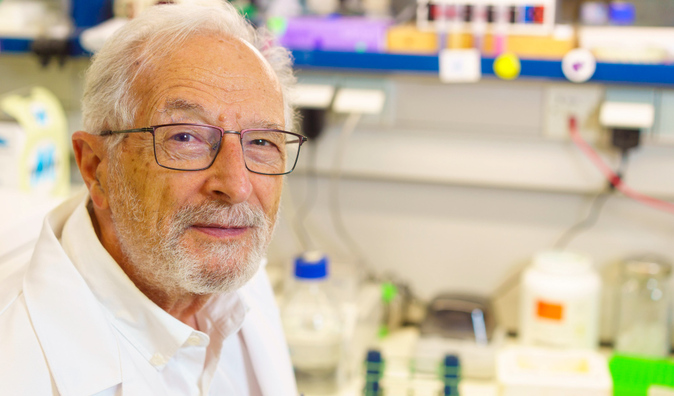covid Spain with 59,226 new positives, the lowest figure for the month of July
Covid "We don't know which ones will come, but with the current variants, antigen tests are still useful"
The virologist Luis Enjuanes, head of the Coronavirus laboratory at the
CSIC
National Center for Biotechnology , advocates "fully" returning to restriction measures in the face of the situation of the
seventh wave of the coronavirus
, which include the "essential" use of the mask in closed spaces, keep a safe distance and reduce the number of people who can gather because "this is crazy" and considers that "we are underestimating" the virus.
Specifically, he referred to reducing "those things that are most dispensable, such as the number of people who can attend the stadiums, music or summer festivals", which are held on these dates in Spain, because "this is not rational".
Enjuanes has spoken in these terms before giving the conference 'Origin, evolution and pathogenicity and protection against SARS-CoV-2', at the Annual Biotechnology Congress (BAC) held at the Universitat Politècnica de València (UPV) .
To know more
Covid.
The Spanish vaccine that wants to be an antivariant shield
Writing: CRISTINA G. LUCIOMadrid
The Spanish vaccine that wants to be an antivariant shield
The researcher explained that
in summer the virus "loses infectivity"
due to high temperatures, but that it is also the time when "it is more easily contaminated" by not wearing the mask on the street, at festivals or nightclubs.
In fact, every day that they spend at 37 degrees they lose 10 times their infectivity, which is added to the fact that ultraviolet rays and the greater number of hours of sunlight also inactivate the virus and "that works in our favor."
However, in his opinion, "we are underestimating the virus" since the number of infected fluctuates between 500/1,000 per 100,000 inhabitants and, to enter the control zone, "we should have between 20 and 40 infected".
Regarding the
risk of reinfection
, the virology expert wanted to remind that, despite the fact that the virus is "attenuating", even those who have received the three doses of the vaccines can be reinfected.
This is due to the fact that current vaccines, which are administered intramuscularly, "have
very low mucosal effectiveness
" and "short-lived" immunity.
In fact, he has detailed that if the mucosa is not immunized locally where the virus is going to infect, 98% of vaccination efficacy is lost.
"People who have been immunized three times are not only infected, it is that they
amplify the virus and spread it again
," pointed out the expert, who maintains that right now, mass immunization theories "do not count" and you have to do "other math".
A "very promising" vaccine
Along these lines, he pointed out that the
intranasal vaccine
that his department is preparing "is very promising" since it will be administered by this route because "if you do not immunize locally in the mucosa where the virus is going to infect, 98% efficacy of vaccination", although it does not confirm a precise date for its release because "it is necessary to increase the efficiency of production, adapt it to GMP standards, good manufacturing practices, and optimize yields".
Regarding vaccination, the expert pointed out that in Spain "we have a very good situation in terms of acceptance of vaccines" and added that "we have no other choice" given that "the immunity that they have induced in our respiratory tract It's very short."
In addition, it emphasizes the need for older people to acquire the booster dose: "If a person between 18-50 years of age responds with an effectiveness of 90%, a person over 65 years of age has an effectiveness of 35/40 %" and points out that if as of October there was already a form of intranasal administration "the effectiveness of the vaccines would jump up with great power".
Enjuanes
cannot predict when the peak of the seventh wave will be reached
because "guessing the future is difficult" and the virus "as it goes up, it goes down."
However, he points out that we will reach the maximum peak and the plateau and has warned that the vaccine antibodies have already lost "quite an effectiveness" against the omicron and, now, those who take the three doses will be around 50%.
The specialist emphasizes that the vaccines developed to date are
of "good quality"
although the problem is the route of administration and, in this sense, points out that when they are given intranasally "their infectivity will increase dramatically and that will allow much better control" a pandemic that "has come to stay because it is transmitted with great ease".
As he stressed, the virus will become "
seasonal
", it is something that "everyone" predicts, and over the next few years we will all have to vaccinate, although it is possible that "at some point" it will become a virus like the others. four known human coronaviruses for which there is no need for vaccination.
Conforms to The Trust Project criteria
Know more
covid 19
Coronavirus

